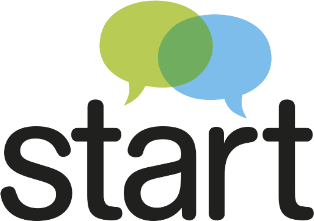In July 2020, Olivia Farrelly was dismissed from her job after disclosing her stutter to her employer during an informal performance meeting held at a cafe. Her employer called the meeting as they had concerns about her ability to communicate after hearing her stutter on the phone with customers. Following Olivia’s disclosure, the employer’s response was to offer her a different role which did not involve speaking on the phone, then dismiss her when this offer was declined.
Two years later, in August 2022 Olivia won a claim of unlawful discrimination against her
former employer, who has been ordered to pay her $22,000 for hurt and humiliation, and lost earnings.
Although Olivia herself doesn’t see her stutter as a disability (this is a personal view), it was treated as one during this process. The Human Rights Act states that it is unlawful to discriminate against someone because of their disability, and that disabled people have the right to be treated with respect, dignity and equity.
The most obvious issue, and the one that the Employment Relations Authority agreed on, was that Olivia should not have been dismissed from her job for having a stutter, a stutter that Olivia reports was not impacting on her ability to do her job.
Underlying this decision by Olivia’s employer, is a more widespread issue facing people who stutter. The general public, including employers, often have a misguided perception of stuttering, and as a result do not have the knowledge or experience in how to appropriately and effectively respond to and support people who stutter in the workplace.
Given that approximately 1% of people have a stutter (that’s 50,000 New Zealanders, and over 70 million people worldwide) with many of those being teens and adults in employment, this is a significant issue.
People who stutter are capable individuals, who with the right support and understanding can be incredibly successful. There is a long list of successful people who stutter (both well-known and everyday kiwis) who are in roles that require effective communication skills. The narrow view that people who stutter cannot communicate effectively, or cannot carry out roles which require speaking is harmful and unhelpful. Effective communication involves a myriad of skills. Formulating language clearly and concisely, delivering the message with expression, adapting the message to suit the listener, using body language and facial expression, choice of vocabulary…the list goes on. People who stutter can do all these things, and often do them well, albeit with an unpredictable flow or rhythm, and perhaps some face or body movements (known as secondary behaviours). As with everyone, there’ll also be people who stutter with less than strong communication skills, which would usually be identified during the interview process.
Olivia’s decision not to disclose her stutter in the interview is personal, and one we
frequently discuss in therapy. The reasons for choosing not to disclose vary. Some people feel that their stutter is irrelevant, and will not impact their interview or their ability to do their job. For others, they fear the reaction, discrimination and rejection. If the general public had a good understanding of stuttering, and knew how to support people in the workplace, would people who stutter still fear the consequences of disclosure in this setting?
It’s clear that employers and colleagues require an increased awareness and understanding of stuttering. If you have someone in your workplace who stutters, or if you are an employer or manager of someone who stutters, here are a few tips:
● When you hear someone stuttering, maintain easy eye contact and wait for them to finish their sentence
● Focus on what someone is saying, not how they’re saying it
● If you have concerns about an employee’s communication skills, open up the conversation in a safe and sensitive manner. Not everyone likes or has experience in talking about their stutter with others
● Be open to appropriate modifications to make communication easier for your employee
● Don’t make assumptions – everyone who stutters has different feelings, views and experiences of their stutter. Don’t assume that someone who stutters doesn’t want to do public speaking
● Praise their contribution and communication – regardless of whether or not they stutter
● Employers and employees are able to contact START for advice and support
As an organisation, we’re aware that we can do better at educating and supporting workplaces to be better equipped at supporting people who stutter. In the short term, we plan to create a section on our website for employers. Until then, there are some useful resources available internationally.
STAMMA – Information for Employers
Lastly, here’s a link to some videos that show that people who stutter can and should be
heard in the workplace.

